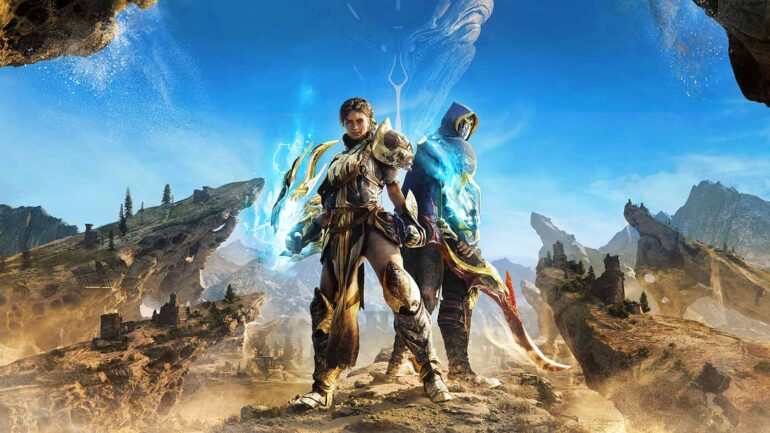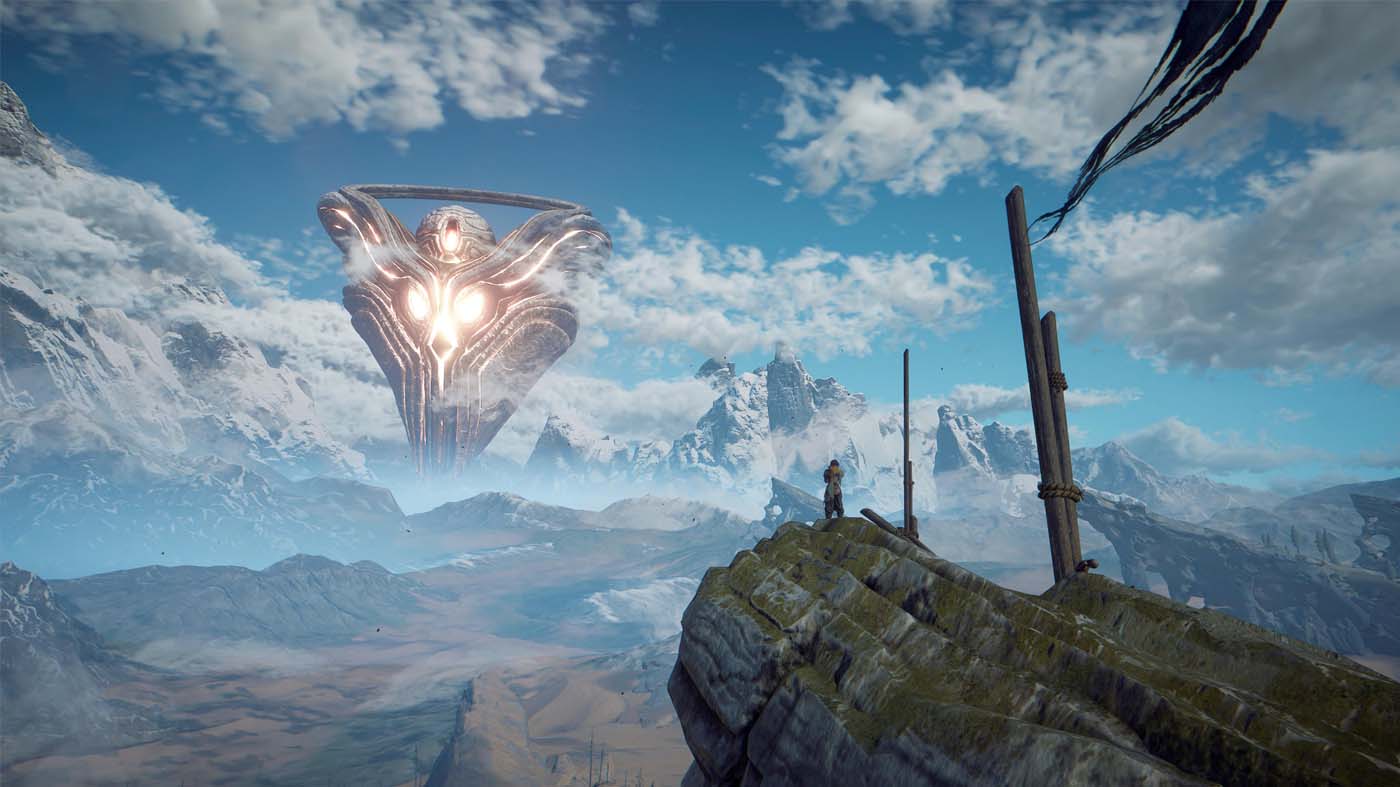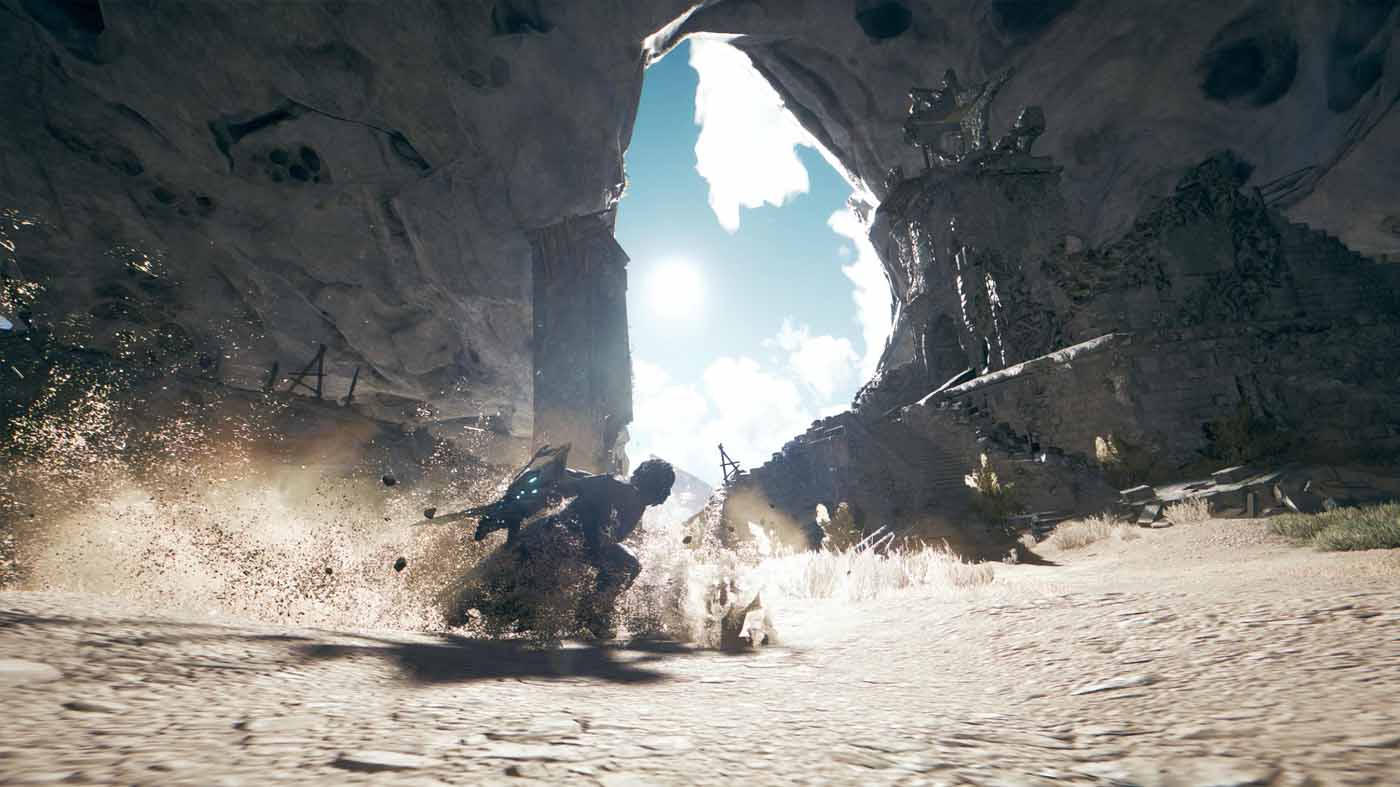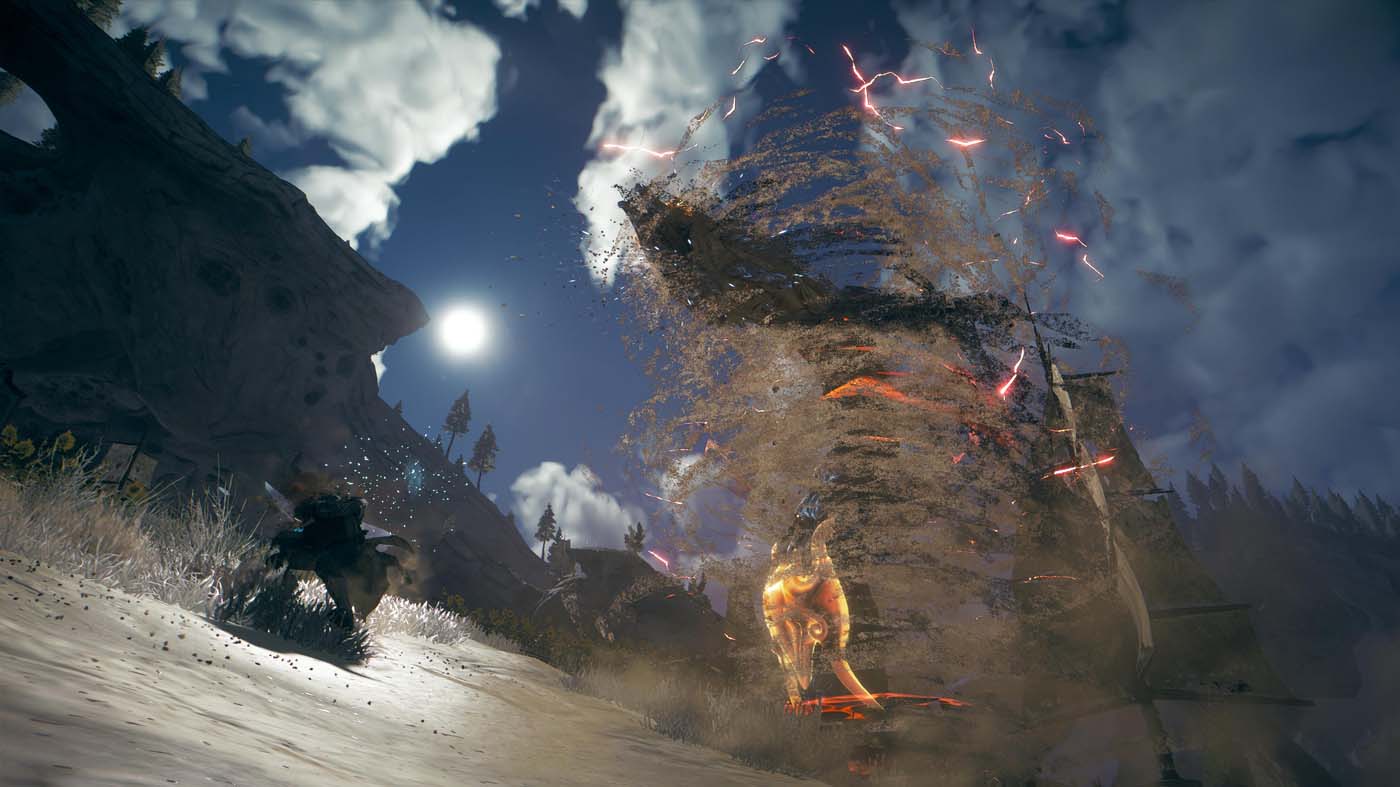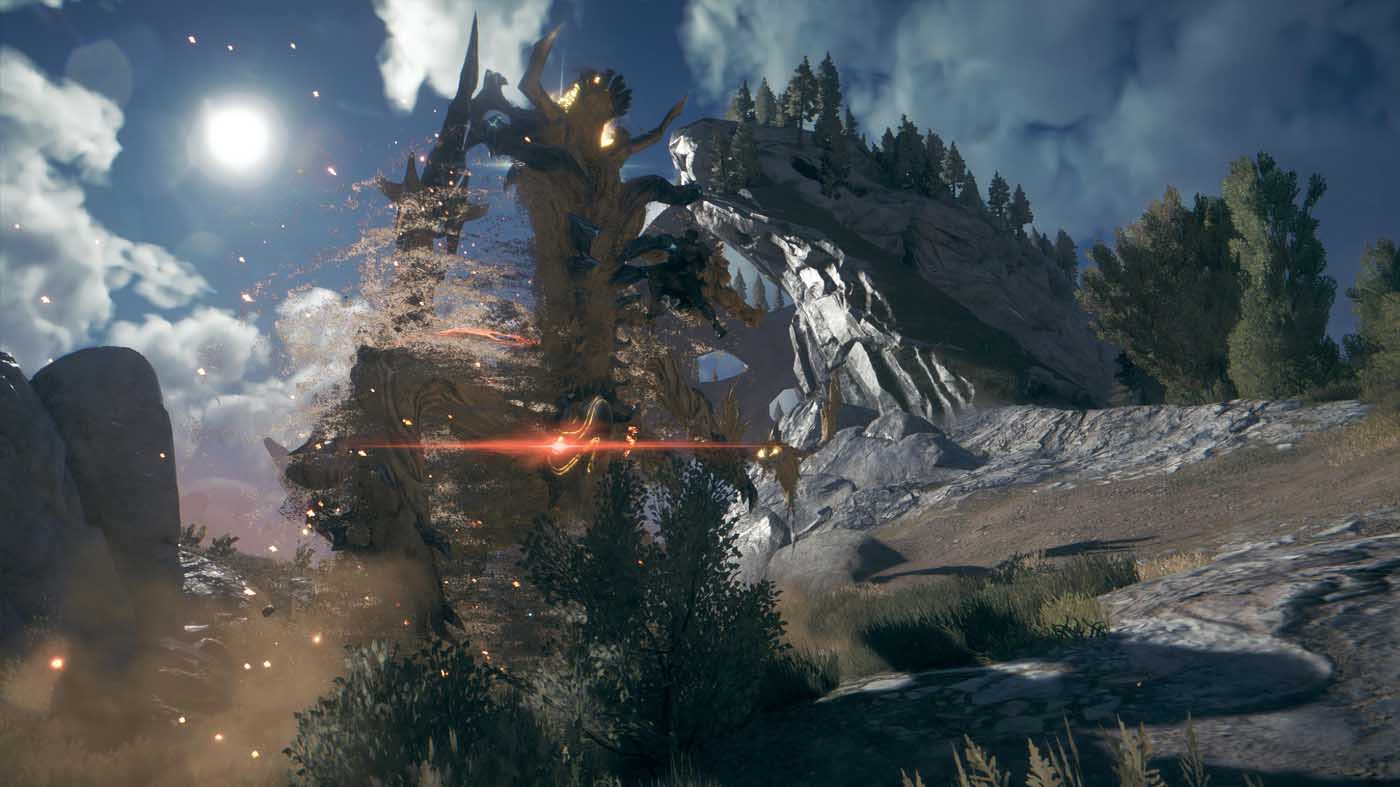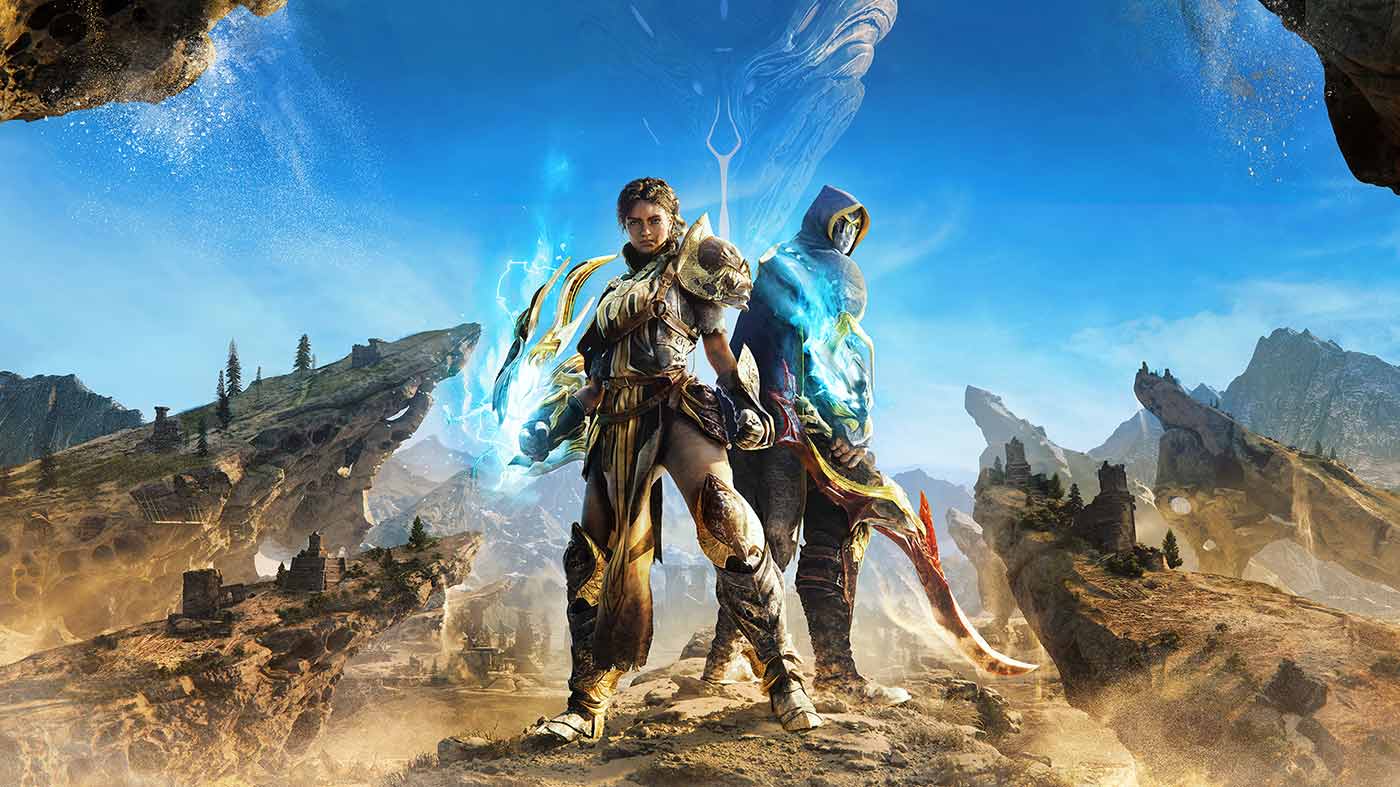There’s a lot of friction in Atlas Fallen. Some of this is intentional; grinding across sand dunes and slamming overpowered attacks into fantastical creatures that are hungry for your blood to stain the earth below. Some of it isn’t; those same overpowered attacks in a constant wrestling match with the game’s camera while its overarching plot and writing catch like sand between gears. A slow but undeniable churn of grit in the machine that undercuts the game’s best ideas and brings an otherwise cool set of mechanics low.
I can always see the vision in a Deck13 game. The German developers have spent the better part of a decade emulating the FromSoftware house style, transplanting challenging action combat systems into fresh settings on a much leaner budget. The Surge games, both of which adhere much closer to the team’s inspiration points in terms of structure and theme, also embodied some of its best work. Tightly crafted experiences that introduced unique layers to the formula and successfully lifted it all into a gritty sci-fi world. Atlas Fallen pivots in almost every way; deliberate play spaces traded for open-zones, discreet encounters for bombastic rumbles, sharpened storytelling for genre pastiche. It goes on, but for the pockets of fun I had in Atlas Fallen, I struggled to see the vision.
Atlas, the titular world, has fallen. A harsh and arid land of rocky mountains, sandy dunes and dying pockets of forest, this primordial plateau has been the stage of a centuries long holy war. In the process, the land has been systematically strip mined of its Essence, a glittery sand-like substance that fuels the magic of the realm and is now solely meant for Atlas’ looming god, Thelos. Having taken the form of a massive stone idol that floats above the land, tracking its denizens like a fucked up Mona Lisa, Thelos has weaponised humanity’s belief systems and forged a religious army to do his bidding. You play as a Nameless, an underclass of people who form the worker backbone of the continent with very little in the way of compensation or basic respect.
THE CHEAPEST SHIPPED COPY: $79 AT AMAZON WITH FREE SHIPPING
Once you’ve customised your hero from a decent enough selection of hairstyles, you’ll be quickly introduced to the game’s central idea – the Gauntlet. Found during a disastrous trip across the country and quickly wielded to set herself free from servitude, the Gauntlet is 2023’s third sentient, magical handheld that cracks wise at the player while offering them access to escalating powers to use in combat. Atlas Fallen’s Gauntlet houses Nyall, a Na’vi-looking blue man with a vendetta against Thelos and a tremendous arse to boot. Nyall will be with you across your whole journey, granting access to a plethora of RPG systems, traversal tools, plotty dialogue and game hints, the latter of which can be thankfully toned down in the game’s settings.
From here, Atlas Fallen is a pretty straightforward action RPG affair. You’ll be sent out across Atlas to collect pieces of the Gauntlet to power it up enough to progress to the next story beat, each portion of the map a discreet but interconnected series of open zones that house side quests and challenges to complete. The Gauntlet allows the Nameless to shift the sands of Atlas, raising platforms, activating timed magical puzzles, and best of all, propelling themselves across the sand like an ice skater. Deck13 use this to great effect, turning any open space into a slip and slide for the Nameless, and solving the open-world traversal slowdown effortlessly, if not seamlessly. You can only glide if the game registers sand beneath your feet, making some areas a clumsy stop/start experience as a small rock abruptly stops your flow in frustrating ways.
These flow issues are writ large in the game’s combat, an uneven and sporadically fun collision of systems. Atlas Fallen gives players an impressive arsenal of tools to play with, layering basic weapons like axes and whips with several types of modifiers and an underlying risk/reward micromanagement in Momentum. Landing consecutive blows against enemies raises the Momentum meter, unlocking evolved versions of your base weapon along with tiered special abilities, but also making you much more vulnerable to damage. Momentum can be expelled through critical strikes that deal massive damage and lower the bar again, making for a constant and engaging push and pull between power and limitations. It’s also consistently undercut by an unstable camera that pulls focus in frustrating ways during group encounters, endlessly fighting with the lock-on function to make for a disorientating experience.
Doubly so when camera control is essential to fully engaging with Atlas Fallen’s enemy designs, most of which require targeting specific body parts to deal meaningful damage. In concept it rules, harkening back to The Surge and allowing you to incapacitate certain attacks or cleave off new weapons by focusing on armoured limbs and the like. In practice, it wears thin, as to actually defeat a foe you’ll need to focus damage but the camera makes this an exercise in frustration. Atlas Fallen’s menagerie is detailed but limited, a rotating door of Wraiths who escalate over the course of the game but never vary all that much. It’s a combination of issues that take a baseline solid combat system and dulls its shine like sand slowly but surely burying a treasure.
Elsewhere there is a loose set of RPG systems churning away, most of which can be ignored to no real peril. There are a few currencies to collect to spend on vendors, leveling and perk slots; a crafting system that requires you to collect plants and ores from the world; a bunch of side quests and NPCs; armour customisation; the list goes on. The bulk of essentials will be given to the player via the main questline, but what really makes these systems forgettable is the overarching world of Atlas Fallen. It’s not bad, as such, but it’s shockingly dry. Voice acting and dialogue is about as unenthused by it all as I am writing this, and the repetition of the game’s missions and puzzle challenges quickly dispels any real sense of adventure.
Which is a shame because Atlas Fallen is partway to being exactly the kind of elevated action experience the genre deserves right now. A comforting throwback to design ethos of old, happy to let the player just wail on some monsters in a cool looking world. And there are elements of that kind of fun buried in here. Atlas feels grand, a massive playground to whip across the sands on and marvel at the imposing natural beauty of it all. Claiming it back from an evil god with these particular tools should be a great time. Instead, for the moments of fun I had at this beach, I just feel sunburnt and ready to wash the sand off.


